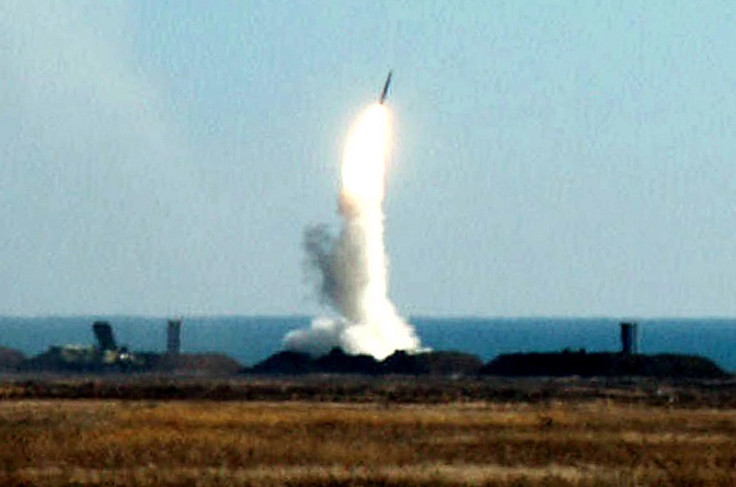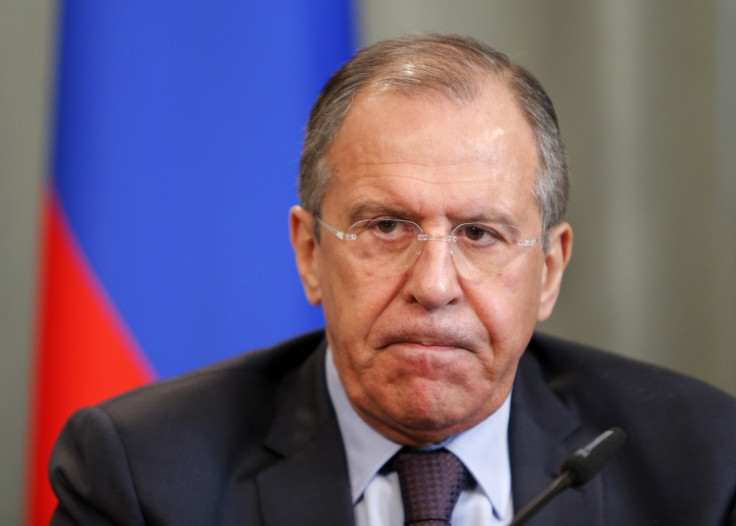Israel slams Russian decision to lift embargo on sale of advanced S-300 anti-aircraft missiles to Iran

Israel has attacked Russia's decision to lift its five-year ban on the delivery of S-300 anti-rocket missile systems to Iran, saying it proves that the deal to curb Tehran's nuclear programme will only strengthen it militarily.
"Instead of demanding that Iran desist from the terrorist activity that it is carrying out in the Middle East and throughout the world, it is being allowed to arm itself with advanced weapons that will only increase its aggression," Strategic Affairs Minister Yuval Steinitz said on 13 April.
The Kremlin said Russian President Vladimir Putin signed a decree ending a self-imposed ban on delivering the S-300 anti-missile rocket system to Iran, removing a major irritant between the two after Moscow cancelled a corresponding contract in 2010 under pressure from the West.
The US and Israel had lobbied Russia to block the missile sale before it did so in 2010, saying the S-300 system could be used to shield Iran's nuclear facilities from possible future air strikes.
US Secretary of State John Kerry spoke by telephone with Russian Foreign Minister Sergei Lavrov on Monday to express his concern about the shipment of S-300 anti-missile systems to Iran.
The two men also talked more globally about the framework agreement between the six world powers and Iran, which was negotiated earlier this month in Lausanne, Switzerland.
Lavrov told the Russian News Agency TASS that the S-300 anti-missile systems ban was no longer necessary in light of the framework agreement. He added that the system was defensive, hence would pose no threat to Israel.
"We see no need to continue doing this given progress in talks on Iran's nuclear programme and the absolutely legitimate nature of the forthcoming deal," he said.

"S-300 is an air defense missile system, which is of a purely defensive nature. It is not designed for attacks and will not put at risk the security of any regional state, including Israel," Lavrov said.
US State Department spokeswoman Marie Harf told reporters in Washington, "it is not constructive at this time for Russia to move forward with this."
"Given Iran's destabilizing actions in the region .. this is not the time to be selling those kind of systems to [Iran]," she said.
Harf pledged that the US would protect its allies in the region, including Israel, against Iran.
She added that the US did not believe the decision would impact the continued negotiations between the six world powers and Iran toward a final agreement by the end of June.
"We see this as separate from the negotiations," Harf said.
Steinitz disagreed and said that Russia's decision to lift the ban was a sign of how dangerous the Iran deal was.
"This is the direct result of the legitimacy that Iran is receiving from the nuclear deal being made with it.
"This also proves that the economic momentum in Iran that will come in the wake of the lifting of the sanctions will be exploited for armaments and not used for the welfare of the Iranian people," he said.

The US has said that this deal will make the region safer because it will curb Iran's nuclear programme by extending its breakout time to develop nuclear weapons from a few months to a year's time.
In a phone conference with Israeli reporters earlier in the day, Under Secretary of State for Political Affairs Wendy Sherman said that a military strike against would not eliminate its nuclear program. It would only set it back by a few years, said Sherman who heads the US negotiating team in the Iran talks.
She argued that the framework agreement is therefore the best option to keep Iran from producing nuclear weapons for an extended period of time.
Israel has argued that the best option is continued and increased sanctions.
Increase sanctions
On Monday night Prime Minister Benjamin Netanyahu warned of what would happen with Iran once sanctions were lifted.
"Iran is receiving legitimacy to continue these actions and when the sanctions are lifted shortly, if indeed the deal is approved, it will receive billions of dollars to finance its war and terrorism machines, with international legitimacy. Before our very eyes an absurd reality is taking shape in which the key to our fate and the future of the Middle East is liable to be delivered into the hands of the fanatical Iranian regime," he said.
"An agreement full of holes with Iran will not ensure regional stability; a vigorous and resolute policy that prevents it from arming itself with nuclear weapons and compels it to halt its takeover of other nations would," Netanyahu said.
© Copyright IBTimes 2025. All rights reserved.





















